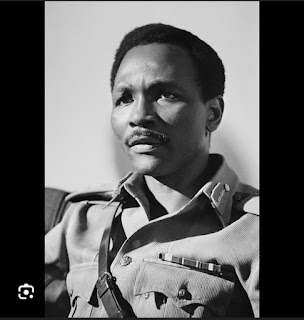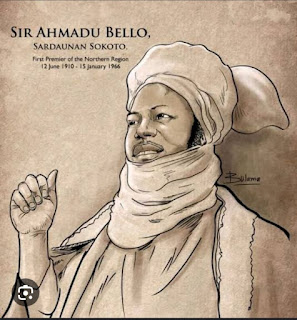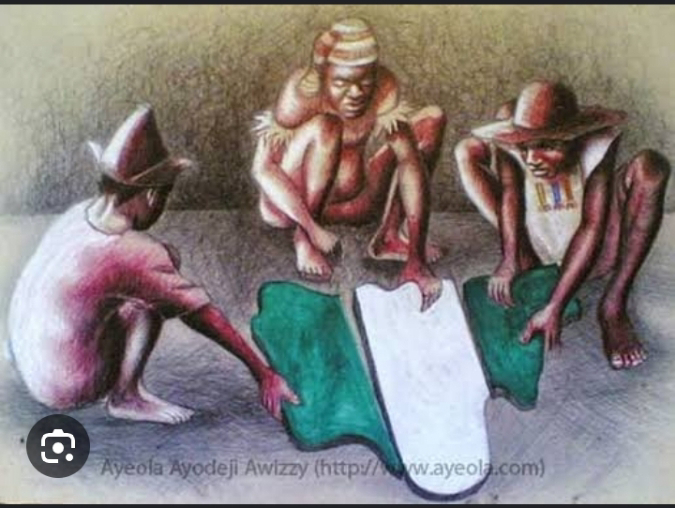The Gowon Regime, and Events That Led To The Nigerian Civil War
Introduction
Yakubu Dan-Yumma "Jack" Gowon, is a retired Nigerian army general and military leader. An Anglican Christian from a minority tribe Ngas of northern Nigeria, Gowon is a Nigerian nationalist and a believer in the unity and oneness of Nigeria. Gowon's rise to power followed the July 1966 counter-coup and cemented military rule in Nigeria. Consequently, Gowon served for the longest continuous period as Head of State of Nigeria ruling for almost nine years until his overthrow in the coup d'etat of 1975 by Brigadier Murtala Mohammed.
As Head Of State
As head of state of Nigeria, Gowon presided over a controversial Nigerian civil war and delivered the famous "no Victor no vanquished" speech at the end of the war to promote the rehabilitation, reconstruction and reconciliation program. The Nigerian Civil War is listed as one of the deadliest in modern history, with some accusing Gowon of crimes against humanity and genocide. Gowon maintained that he committed no wrongdoing during the war and that his leadership saved the country.
The original plan of Murtala Mohammed and his fellow coup-plotters during the July counter-coup, seemed to have been to engineer the seccession of Northern Region from Nigeria as a whole but they were subsequently dissuaded of their plans by several advisors, amongst which included a number of high-ranking civil servant and judges, and important emissaries of the British and American governments who had interest in the Nigerian polity. The junior officers then decided to name Lieutenant Colonel Gowon, who apparently had not been involved in events up until that point as Nigeria's Head of State.
Events That Led To The Civil War
The installation of Gowon as Head of State was celebrated by massive killings of Igbo by northerners who finally unleashed the anger they had been feeling for the past seven months. Thousands of easterners were killed as officers either lost control of their troops or actively encouraged them to carry out violence against Igbo civilians, it did not take long for people from all points of life to participate. Tens of thousands of igbos were killed throughout the north. The persecution precipitated the flight of more than a million Igbo towards their ancestral home in Eastern Nigeria. Lieutenant Colonel Chukwuemeka Odumegwu Ojukwu, the Military Governor of the Eastern Region argued that if Igbo lives could not be preserved by the Nigerian state, then the Igbo reserved the right to establish a state of their own in which their rights would indeed be respected.
Thus tension arose between the Eastern Region and the Northern controlled Federal Government led by Gowon. On 4th January 1967, in line with Ojukwu's demand to meet for talks on neutral soil, a summit attended by Gowon, Ojukwu and other members of the supreme military council was held at Aburi in Ghana, the stated purpose of the which was to resolve all outstanding conflict and establish Nigeria as a confederation of regions. The outcome of this summit was the Aburi Accord. The Aburi Accord did not see the light of day as on his return to Nigeria, Gowon who was fairly young and did not have much knowledge on governmental matters was advised against establishing a confederation . Eventually Gowon established the same "unitary government" earlier planned by Maj.Gen Aguiyi Ironsi that was the cause of much exasperation in the North.
In anticipation of Eastern seccession, Gowon moved quickly to weaken the support base of the region by the creation of twelve new states to replace the four regions. Six of these States contained minority groups that had demanded state creation since the 1950s. Gowon rightly calculated that the Eastern minority would not actively support the Igbo seccession given the temptation of having their own states once the seccession efforts were defeated. Ojukwu responded by announcing the secession of Eastern Nigeria and declaring the Biafran state three days after the creation of states. Gowon shot back by announcing "police action" to bring back the "rebels" of Eastern Nigeria. On July 6th 1967 Nigeria officially entered a civil war that lasted three years.



Comments
Post a Comment